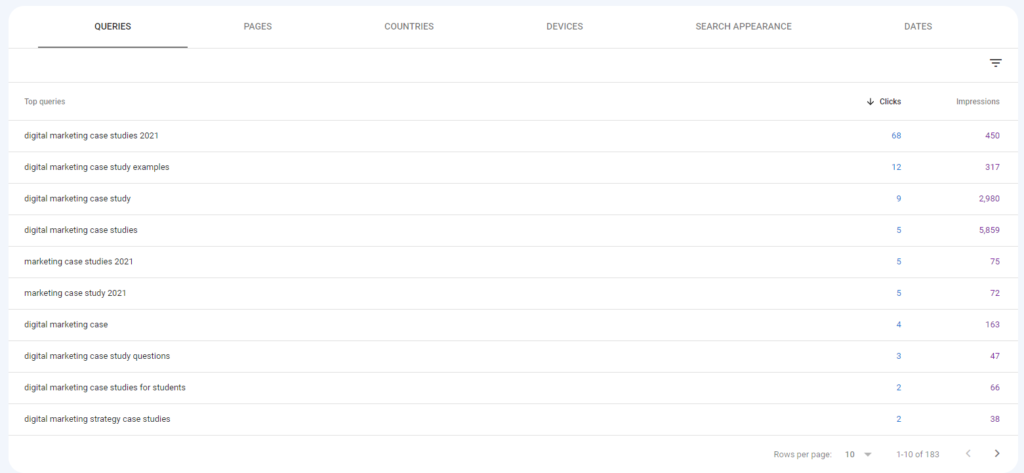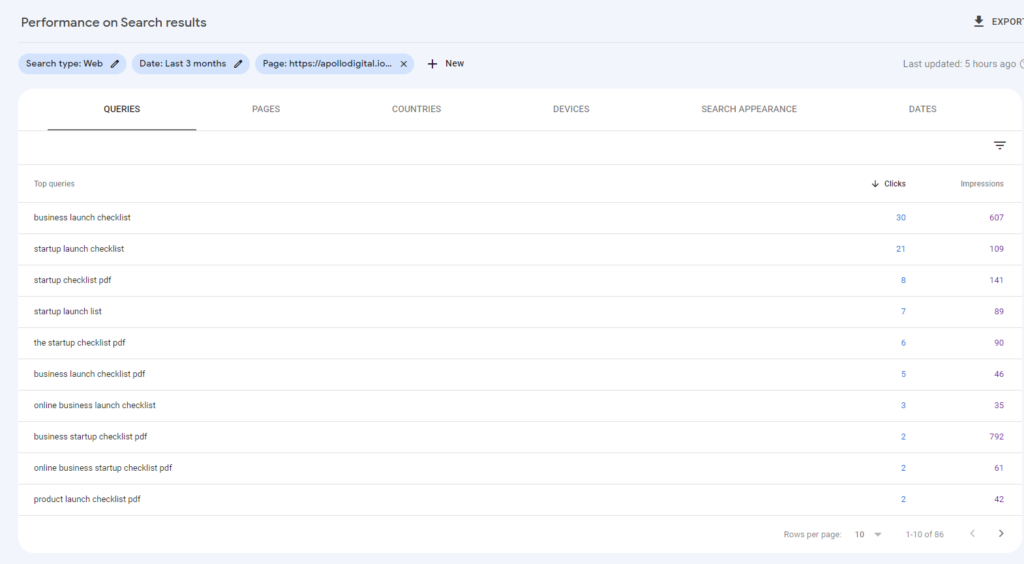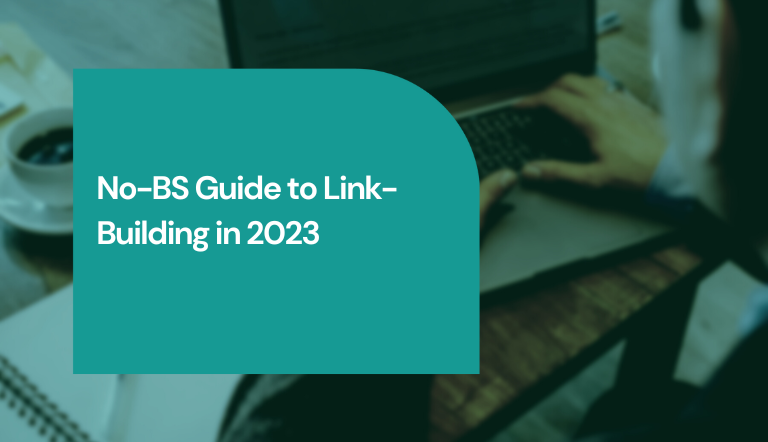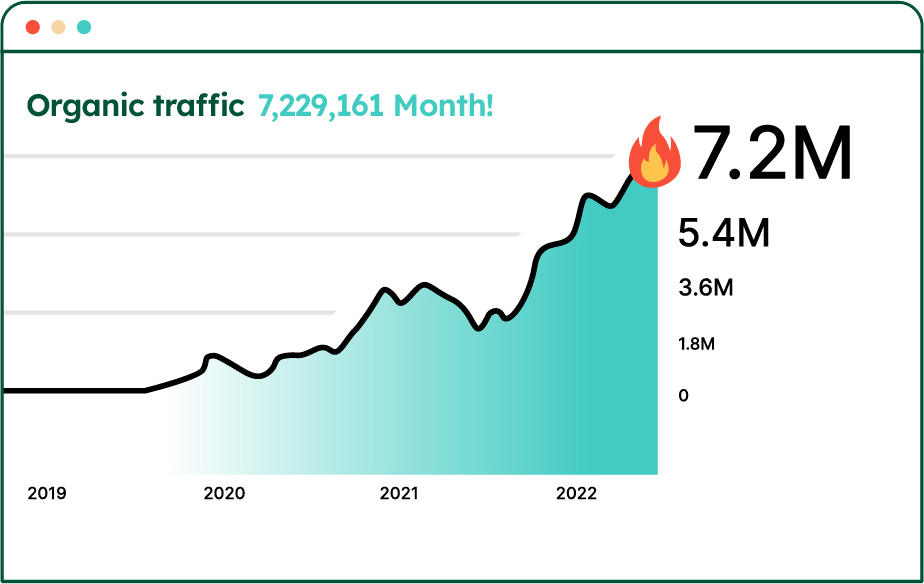If you’re just getting started with SEO, you’re probably wondering about things like:
- How many keywords should you target per page?
- How many keywords can a single page rank for?
- Is there such a thing as using too many keywords?
In this article, we’re going to answer all of those questions and more! Starting with the most important one:
How Many Keywords Per Page is Good for SEO?
For each page, you should focus on mentioning one main keyword multiple times throughout the article (Once in the H1 header, H2 header, and throughout the body text).
Something to keep in mind here, though, is that Google considers similar keywords to be synonyms of each other.
E.g. if you want to rank for “interior design agency” and “interior design firm,” you just need one single page optimized for either of these keywords. Google understands that someone Googling either of these keywords is technically looking for the same exact thing.
How Many Keywords Can One Page Rank For?
There’s no limit to how many keywords a single page can rank for. According to a study by Ahrefs, a page ranking #1 is likely to also rank for 1,000+ other keywords, with the median value being 400.
What this means is that the page you’re working on will likely rank for the main keyword you’re optimizing it for, but it’ll also rank for different variations of it.
If you create an article about “digital marketing case studies,” for example, you’ll see that you also rank for keywords such as:

This is something you should consider when evaluating which keywords you want to target.
For example, you might see that a keyword has just 50 monthly searches at a glance and think that it’s not worth targeting.
Once you start ranking for it, though, you might discover that your page also ranks for 10-20 related keywords, which significantly drives the number of traffic you’re getting.
Should I Mention Keywords on my Homepage?
Absolutely. For example, if you’re an accounting firm, you might want to rank for something like “accounting firm Boston.” The best page to optimize for such a keyword is your homepage.
By optimizing your homepage for a specific keyword, you’re a lot more likely to rank than if you created a separate page targeting the same keyword. This happens for several reasons, one of the most important ones being that your homepage gets a lot more backlinks than the rest of your pages.
There are, however, some cases where you shouldn’t optimize your homepage but use it for branding instead.
For example, if you’re a tech media like Mashable, you’d be better off using your homepage to display content than to over-optimize it for a keyword like “tech media,” which doesn’t even have that many searches in the first place (210 searches per month).
What’s the Ideal Keyword Density?
The ideal keyword density is between 0.5% to 2%. That said, keyword density is not a direct ranking factor.
Mentioning the keyword here and there helps Google (and your readers) understand what your page is about, but it’s not a deciding factor when it comes to how well you can rank.
Can a Website Have Too Many Keywords?
Yes, a website or a page can have too many keywords. Over-optimizing, also known as keyword stuffing, is a black hat SEO practice where an SEO practitioner mentions different variations of their target keyword regardless of whether or not it makes sense contextually.
Here’s an example of keyword stuffing, courtesy of SE Ranking:

While you’re probably not going to get penalized for keyword stuffing, you definitely won’t get rewarded for it either.
How to Optimize a Page for a Keyword
To optimize a page for a given keyword, follow this checklist:
- Include the keyword in the URL slug. E.g. if you’re targeting the keyword “vacuum cleaner,” the URL would be site.com/vacuum-cleaner/.
- Include the keyword in the H1 title.
- Include the keyword in one of the H2 headers.
- Mention the keyword several times throughout the article (but don’t overdo it). 0.5% to 2% density should be good.
- When building links to this page, try to mention your target keyword in the anchor text of the backlink. Don’t overdo this either, though, as unnatural inbound links are against Google’s webmaster guidelines.
Once the page already starts ranking, you can optimize it even further by doing the following:
Open up the page on Google Search Console and see which keywords it’s ranking for:

You’ll see that some of them are not the ones you initially optimized the page for. Grab some of these keywords and sprinkle them throughout the page.
Again, don’t do keyword stuffing – just include these keywords where it logically makes sense to do so.
SEO Keywords FAQ
#1. Do Keywords Still Matter for SEO?
Yes, keywords still matter for SEO. You should aim for getting a keyword density of 0.5% to 2% for each of your web pages. That said, keyword density is not a ranking factor on its own, so don’t over-optimize your content by mentioning keywords too often.
#2. Does Google Punish Keyword Stuffing?
While you’re unlikely to get penalized for keyword stuffing, you won’t get rewarded for it either. These days, Google focuses a lot more on user experience metrics than on how many times a keyword is mentioned on a given page.
Since unnatural content is not good for user experience, chances are, Google is simply not going to give you any rankings for your pages.
#3. What’s the Maximum Number of Keywords I Can Rank For?
There’s no maximum number of keywords you can rank for. According to a study by Ahrefs, though, a high DA page ranking on high-volume keywords can rank for as many as 10,000 plus keywords.
#4. How Many Keywords to Use in a Blog?
The ideal keyword density for a blog post is around 0.5% to 2% of the total word count.
#5. Are More Keywords Better for SEO?
No, more keywords are not better for SEO, as keyword density is not a ranking factor for Google.





